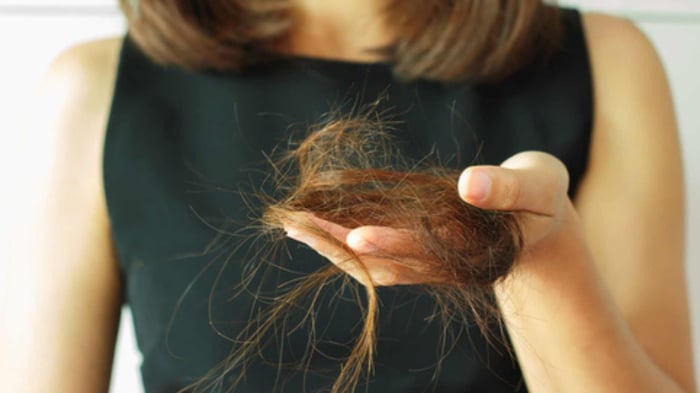Two years after the onset of the pandemic, there is still a lot we don’t know about the residual effects of the Covid-19 virus and all its variants. One of those is Covid and hair loss.
While not life-threatening, Covid hair loss can still be devastating and life-altering, is experiencing excessive hair loss after Covid.
Studies Correlate Covid and Hair Loss

According to the National Library of Medicine, in a study of 10 female patients in New York City, which was an early epicenter of the virus, each participant experienced excessive hair loss weeks to months after infection, with their hair coming out in large clumps and thinning along the front hairline.
The women had a median age of 55 years old, were of diverse ethnic backgrounds, had no history of hair loss, and no other conditions that could be determined to be the cause of their hair loss.
With no other factors possible as the cause, they were diagnosed with telogen effluvium or TE, which is characterized as the loss of hair within months of a serious stress-related event.
Another study of 39 patients ranging in age from 22 to 67 showed that they experienced post-Covid hair loss two to three months following infection.
In that study, drugs used to treat Covid were ruled out as the cause of the hair loss.
Covid and Hair Loss

Being under high stress can lead to three different types of hair loss, one of which is telogen effluvium, according to the Mayo Clinic.
Trichotillomania and alopecia areata are the others. Trichotillomania is an uncontrollable urge to pull out your own hair. Alopecia is when the body's immune system attacks hair follicles and causes hair loss.
Having Covid is a stressful event, explains Dr. John Wolf, chair and professor of dermatology at Baylor College of Medicine, so it’s not surprising that it can lead to hair loss.
To understand Covid hair loss, you need to understand your hair’s growth cycle.
Hair follicles go through three phases: anagen—the growth stage, catagen—the transitional phase, and telogen, the resting or shedding phase.
Normally, 5 to 10 percent of your hair is in the telogen—or resting/shedding—phase at any one time.
When you experience a stressful event—like the Covid virus—your body pushes more of the growing anagen hairs into the telogen phase.
So instead of shedding the normal 100-150 hairs a day, up to 50 percent of your hairs are shedding.
A Harvard study involving mice showed how the stress hormone—called cortisol in humans, corticosterone in mice—affects hair follicle stem cells and inhibits regrowth.
Is Covid Hair Loss Permanent?

While there is a connection between Covid-19 and hair loss, not everyone who is diagnosed with Covid will experience hair loss.
And the good news is, unlike alopecia areata, Covid hair loss is often temporary, and the hair usually grows back.
Less than 10 percent of patients may develop chronic telogen effluvium, which is excessive hair shedding for six months or more, sometimes even as long as several years.
Chronic telogen effluvium can occur with long Covid patients. But even then, patients won’t lose all of their hair because the percentage of hair in the telogen or shedding phase never exceeds 50 percent.
How To Stop Hair Loss After Covid
Now that you know Covid is a common cause of hair loss, there are steps you can take to encourage hair regrowth after experiencing telogen effluvium.
From diet and lifestyle changes to vitamins and supplements, all natural products like rosemary oil , biotin , at-home and professional treatments like microneedling and hair transplants, there are many options to treat your hair loss.
If you have had Covid, always let your doctor and dermatologist know of any health problems, lingering ones or ones that develop long after your symptoms of the virus have gone. The more people report their experiences with this virus, the more we can learn about Covid and hair loss and the better the professionals can treat it.




